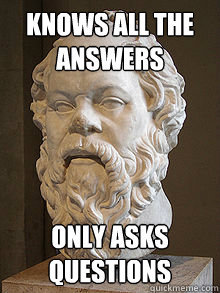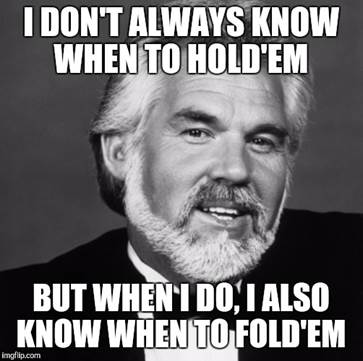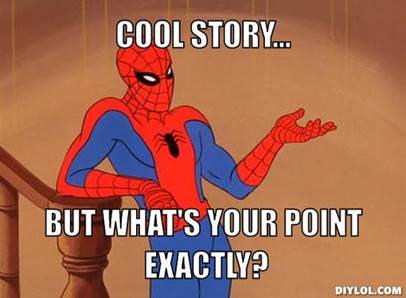Hi folks,
As you know, we’re ramping up some of our security training efforts, so the topic of learning is on my mind. And who better to teach us about learning than Socrates?

Most of what we know about Socrates comes from what his student, Plato, wrote in a series of dialogues starring his teacher. In the dialogue Protagoras, Socrates and Protagoras argue over whether virtue can be taught. Just prior to their big debate, Socrates is approached by a Protagoras fanboy who asks Socrates to put in a good word for him so he can study with the famed sophist. Socrates – likely being a painfully annoying guy in real life – teases the youth by asking a series of questions:
- If you wanted to be a great doctor, with whom would you study? And what would studying with them make you?
- If you wanted to be a great sculptor, with whom would you study? And what would studying with them make you?
- And so what are you trying to become by studying with Protagoras?
The fanboy struggles to come up with an answer other than “wise.” To which Socrates basically asks “what’s the point?”

It’s a similar challenge that we face on a daily basis. We hear about things that excite us and – out of the best of intentions – we enthusiastically embrace them in the interest of improving. New technology? Better philosophy? Latest book?

But that doesn’t always work out in our favor. Take the 2013 Target hack, for example. Target took security seriously and invested hundreds of millions into it, buying the best technology and lots of talent to staff it. But when they were compromised and the alarm bells started ringing, nothing happened. Why? At least one speculation is alert fatigue – when your highly trained personnel become desensitized to alerts and fail to react appropriately. So Target – with best of intentions – jumped at the chance to install newer/better/faster/stronger technology, but didn’t fully consider the end game: how could they effectively consume the output of that technology?
While we’ve recently talked about the value of failure, that doesn’t mean we want to fail. We have limited resources, and we want to focus those resources where they’re most needed and most likely to yield positive progress. New ideas and capabilities are exciting and they can drive us towards unexpected levels of excellence. But instead of immediately jumping on board the latest trend/best practice/technology, we owe it to ourselves, our colleagues, and those we serve to fully consider the end game – what are we trying to achieve? And are we likely to achieve it? And that means pausing to consider, in the spirit of Socrates, what’s the point?
Rex





